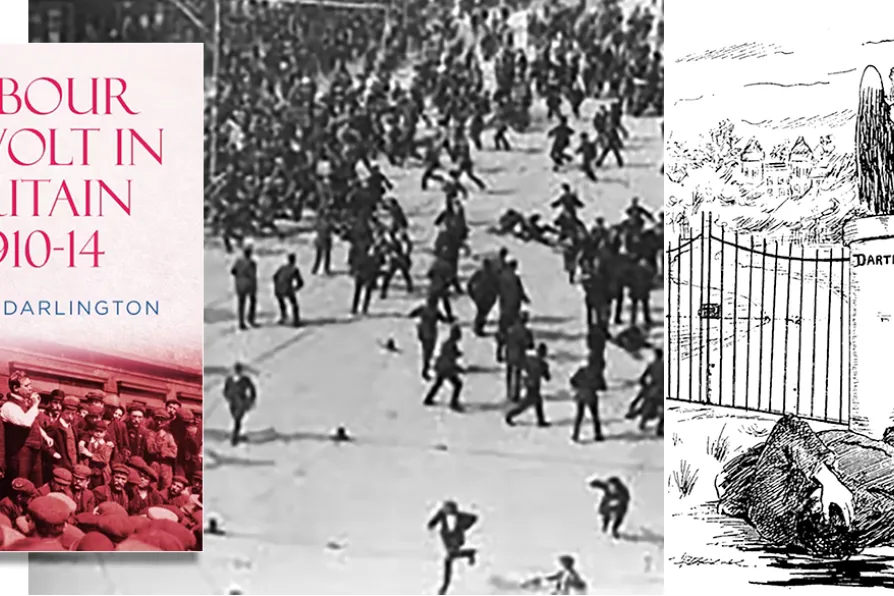PRAGYA AGARWAL recommends a collection of drawings that explore the relation of indigenous people to the land in south Asia, Africa and the Caribbean

 Contemporary satirical cartoon The Demon of Death by Dublin Metropolitan Police break up a union rally on Dublin's Sackville Street, August 1913; Ernest Kavanagh of William ‘Murder’’ Murphy preying over Jim Larkin, September 6 1913 in Irish Worker
[Public Domain/CC]
Contemporary satirical cartoon The Demon of Death by Dublin Metropolitan Police break up a union rally on Dublin's Sackville Street, August 1913; Ernest Kavanagh of William ‘Murder’’ Murphy preying over Jim Larkin, September 6 1913 in Irish Worker
[Public Domain/CC]
Labour Revolt in Britain 1910-14
Ralph Darlington, Pluto Press, £19.99
THIS survey of one of the greatest upsurges in labour action in Britain’s industrial history appears at an opportune time, amidst another significant wave of strike action. The struggles of 110 years ago have, the author concludes, features “which remain of considerable relevance for contemporary union activists and socialists.”
Indeed, it is tempting to read this outstanding historical survey with one eye on the present throughout. Yet the strikes, large and small, that Darlington describes are also of an industrial and political period long left behind.
His heroes are coal miners, dockers, textile workers, Midlands metal workers, Cornish clay workers, and other trades now either dead or, at any event, radically diminished in number and social impact. Railway workers do provide a common thread between the two centuries of struggle, but this serves to draw attention to the central part played by railway transport in the production and realisation of surplus value for large sections of capital a hundred years ago, which is no longer the case.

Corbyn and Sultana’s ‘Your Party’ represents the first attempt at mass socialist organisation since the CPGB’s formation in 1921, argues DYLAN MURPHY













